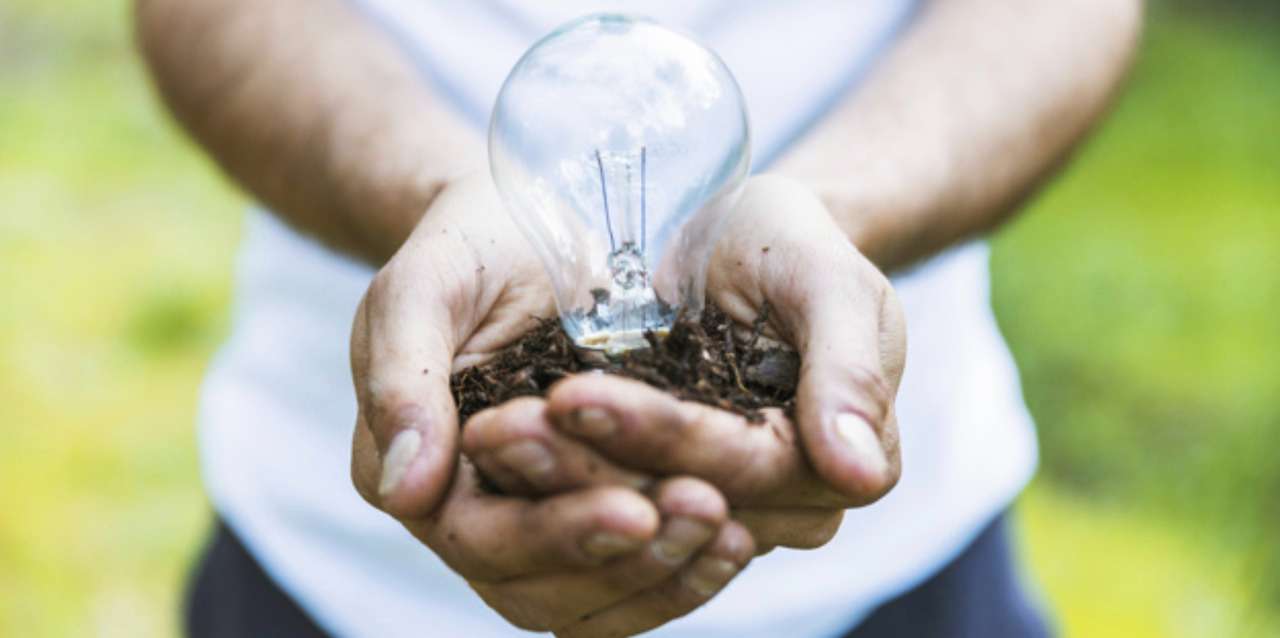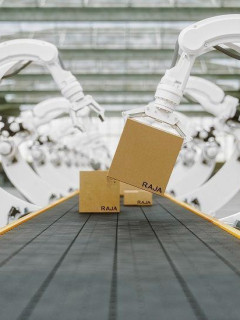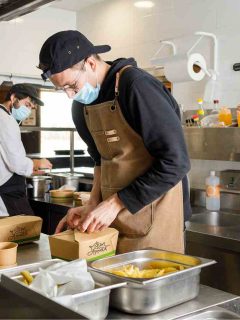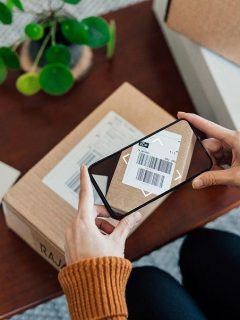Pour la première fois, les Français ont fait de la protection de l’environnement leur premier sujet de préoccupation (52%), avant l’avenir du système social (48%)
(Sondage annuel Steria-Ipsos, septembre 2019)
L’écologie, et plus généralement, l’implication des entreprises dans la société, fait de plus en plus les choux gras de la presse. Si l’on y met en avant les bonnes intentions de certaines, on en cible également beaucoup d’autres pour leurs mauvaises pratiques.
Et pour cause ! Les individus souhaitent aujourd’hui consommer responsable, et ils sont nombreux à interpeller les marques sur les réseaux sociaux sur les sujets environnementaux.
Comment donc les pôles logistiques des entreprises peuvent-ils répondre aux défis environnementaux d’aujourd’hui ? La réponse est complexe, mais il est possible de commencer par revoir sa stratégie d’emballage.
Pour ce faire, les 5R de l’emballage de RAJA est un bon point de départ . Il s’agit de

The 5Rs method at
a glance In order to comply with the 5Rs approach, you need to think about the following on a daily basis: Reduce the weight and volume of your shipments and protect your products without overpacking.
Reduce the weight and volume of your shipments and protect your products without overpacking. Reuse packaging wherever possible. Think about packaging that was originally designed to be reusable or more durable.
Reuse packaging wherever possible. Think about packaging that was originally designed to be reusable or more durable. Replace packaging with a high environmental impact with more environmentally responsible alternatives.
Replace packaging with a high environmental impact with more environmentally responsible alternatives. Renew packaging with a high environmental impact with more environmentally responsible alternatives.
Renew packaging with a high environmental impact with more environmentally responsible alternatives. Recycle packaging to the maximum extent possible and integrate it into a circular economy
Recycle packaging to the maximum extent possible and integrate it into a circular economy
| To apply the 5Rs method to your daily actions, there is nothing better than to remind yourself of it regularly. Do not hesitate to print it and display it in your premises, to help your employees integrate it into their practices |
r is for Reduce
The term “reduce” refers to all the practices that aim to limit the use of packaging materials to the minimum necessary, or simply to avoid empty space in your shipments. The stakes for customers are high: the image of a brand that overpacks and its reputation can be damaged, not to mention the impact on productivity and transport costs. Transporting empty space generates a higher carbon footprint with the treatment of waste and the emission of CO2. To do this, you need to select a package that is best suited to the size of your product, to reduce the empty space in your parcels, and therefore the rate of cushioning to be used. Each package that you currently use exists in many different references. Find the right format from among more than 1,200 that correspond as closely as possible with the size and the weight of your products.jpg) use packaging whose size can be easily adapted to the product, such as height-adjustable cardboard boxes, telescopic boxes, pouches or solutions with integrated cushioning
use packaging whose size can be easily adapted to the product, such as height-adjustable cardboard boxes, telescopic boxes, pouches or solutions with integrated cushioning Variable height cratesto limit the void in your packages
Variable height cratesto limit the void in your packages Packaging with integrated cushioningto limit your use of cushioning
Packaging with integrated cushioningto limit your use of cushioning
| A smart way to reduce the weight-volume of your packaging
Optimising the volumetric weight of your parcels can enable you not only to adopt an eco-responsible packaging strategy, but also to make significant savings on your transport budget In 5 steps, ColisConsult and RAJA reveal a complete methodology to effectively reduce the empty space in your packaging and your transport costs. |
r for Reuse
The key idea behind the term “Reuse” is to make the most of existing resources rather than creating new ones, which are often surplus to requirements. The most explicit example in this area is so-called return packaging. Widely used in the textile industry, it allows customers to return products in the same packaging if they are not satisfied with them. To do this, a double seal also guarantees the e-tailer that the packaged product will be returned in the best possible conditions. Return packaging(pouches, crates, etc.) that allows your customers to send your products back to you in the same packaging
Return packaging(pouches, crates, etc.) that allows your customers to send your products back to you in the same packaging 100% recycled plastic palletsr is for Replace The word “Replace” is used to describe a product that has been replaced by a new one
100% recycled plastic palletsr is for Replace The word “Replace” is used to describe a product that has been replaced by a new one
|
Looking for inspiration on your return packaging? the e-commerce site Le Closet reveals its eco-responsible approach to packaging: the design of a shuttle pouch, which also takes care of the customer experience and unboxing |
r for Replace
The word “replace” does not mean less good packaging, on the contrary. One of the challenges for manufacturers is to use more and more environmentally friendly materials and to eco-design their packaging. This means replacing the product with a more environmentally friendly alternative, but with the same function and quality.
Alternatives to plastic
 Kraft paper tapethe alternative to plastic tape
Kraft paper tapethe alternative to plastic tape The Kraft Paper Pouch
The Kraft Paper Pouch
eco-design: a more eco-responsible custom-made packaging
Eco-design of packaging consists of taking into account, from the design phase, a set of precise criteria: bio-sourced and recycled materials, which use less material, are reusable and recyclable. The ADEME recommends that, in order to eco-design a package, you should
- Bringing together all the company’s stakeholders from the design phase
- Include the end consumer’s use in the thinking process
- Think about the complete packaging package
- Optimise the use of natural resources during the production phase
- Take into account the end of life of the packaging
by tailoring your packaging to your needs, and by grouping together as many eco-responsible criteria as possible, you will optimise its zero impact on the environment
|
Interested in eco-design of your packaging? RAJA’s Custom Packaging Service is at your disposal to help you design packaging that uses less material, is closer to the product, is single-material, or favours eco-responsible materials. |
r as in Renew
Fourth lever of the 5Rs: use as much as possible biosourced packaging, i.e. packaging made from renewable natural materials, which help to reduce our impact on the environment. These natural materials are of particular interest to the food sector, with packaging made from corn starch, sugar cane fibre, palm leaves or bamboo.
Biosourced packaging
 Biobased woven bagsPackaging in
Biobased woven bagsPackaging in bio-based plastic
bio-based plastic packaging madefrom
packaging madefrom
recycled materials
 Recycled plastic bags and pouches
Recycled plastic bags and pouches  Moulded wooden pallets, made from 80% recycled materials
Moulded wooden pallets, made from 80% recycled materials Recycled polypropylene strapping
Recycled polypropylene strapping
R as in Recycle
Recycling is without doubt the most important lever for eco-responsible initiatives. It is important to offer alternatives with recyclable packaging upstream, to encourage selective sorting and also to guarantee the recycling process of our products to offer a second life to the packaging.
| The extra tip for moving to the next stage of the “Recycle” pillar
CITEO offers a range of services designed to help companies, local authorities and individuals adopt eco-responsible approaches. Eco-design of packaging and products, take-back of recyclable or non-recyclable materials, and an application to help your teams with selective sorting… All these are assets to help your CSR strategy succeed. |















